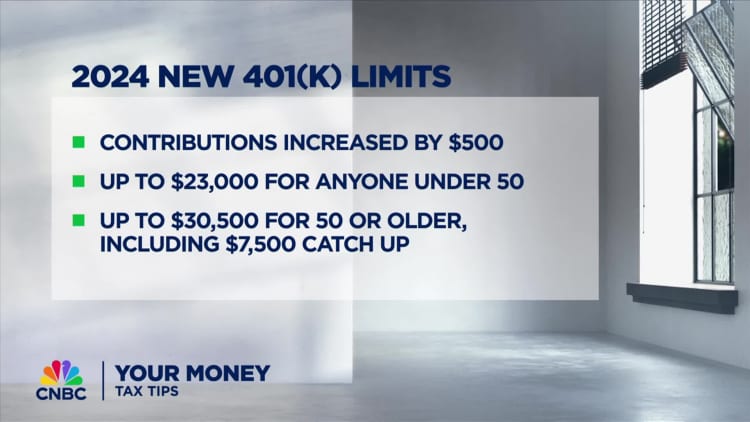Guido Mieth | Stone | Getty Images
As millions of Americans start filing returns, experts warn that last year’s tax withholding errors could trigger an unexpected bill.
The IRS requires tax payments throughout the year and many workers do that via automatic employer paycheck withholdings. Typically, you could expect a refund if you overpaid. By contrast, you may see a tax bill if you didn’t pay enough.
For filers with multiple jobs, withholding issues are “always a surprise,” according to certified financial planner JoAnn May, principal at Forest Asset Management in Berwyn, Illinois. She is also a certified public accountant.
For example, let’s say you made a combined $60,000 from three jobs — $20,000 each — and the companies withheld taxes from your paychecks.
“Those employers are going to withhold a pretty low percentage” since the companies don’t know your combined earnings, May explained.
A similar withholding issue can happen when changing jobs.
For example, if you made $100,000 during the first eight months of 2023 with one company and $50,000 during the last four months with a second employer, it’s likely the second didn’t withhold enough. “That’s where I see it often,” May added.
Your withholding shouldn’t be ‘one-and-done’
Errors can also happen when you’ve had a major life event and don’t ask your employer to update your withholding via Form W-4, said CFP and enrolled agent John Loyd, owner at The Wealth Planner in Fort Worth, Texas.
For example, if you get divorced, your filing status changes from married filing jointly to single filer, which cuts your standard deduction in half, he said. For 2023, the standard deduction is $27,700 for married couples filing jointly, compared to $13,850 for single filers. If you didn’t adjust your withholding to reflect your new single status, you may not pay enough taxes during the year.
Other life changes that may affect your withholding include childbirth, job loss or receiving unemployment income. Making adjustments can “help avoid an unexpected result,” according to the IRS, such as a big refund or balance due.
While making adjustments early in the year is recommended, experts say it’s important to double-check periodically and make changes when necessary.
Tax withholdings “really shouldn’t be a one-and-done,” Loyd added.
Credit: Source link




